How The Premise Of Your Podcast Can Make Your Business More Money
Get our Podcast Premise Worksheet.
One way to make your podcast more profitable—or to launch a profitable show from the get-go—is to nail the “premise” of your show.
The premise of your show gives people a reason to tune. It's a hook that keeps them coming back week after week.
If the premise of your show is directly tied to your business's unique selling proposition and differentiating factors, you end up not only hooking listeners on your show but on your business, too.
What is the premise of a podcast?
The premise of your podcast is the topic you're exploring plus the unique way you're exploring it. More on that in a bit.
Let's take a look at a different medium for a more familiar example.
Consider television shows. With a few exceptions, TV shows don’t ask us to tune in for a specific episode, they ask us to tune in for seasons. They want us to consume an entire series—from pilot to series finale—not a few select hours that look appealing or especially entertaining.
The Tonight Show might put a few extra ad dollars behind promoting an episode where Jimmy Fallon has an epic dance-off with Justin Timberlake after the Super Bowl... but they’d much prefer you just become a regular Tonight Show viewer.
American Ninja Warrior might promote an episode where Jessie Graffi breaks down every assumption we have about how women can perform on the course... but they’re hoping you’ll tune in next week and the week after that, too.
The Bachelor might use a clip from one especially raucous episode in ads... but they’re using it to promote that whole season, not just that episode.
TV shows try to hook you with a premise: America’s funny boy next door plays silly games with celebrities or athletes from all walks of life do incredible things on a ridiculous obstacle course.
Once you’re hooked on the premise of a show, you tune in week after week.
You don’t really need to know what the next episode is about because you’re hooked on the show itself.
That’s a huge opportunity for TV producers—which is why TV is still big business and more and more YouTube channels are starting to resemble traditional television.
It’s also a huge opportunity for podcasters—and why more and more small business owners are starting shows.
Unfortunately, many people start a podcast for their small businesses without considering the premise.
At this point, it’s important to point out that this is not how most blogging, social media, or even most YouTube channels work.
Blogs, social media accounts, and YouTube channels play to the feed. They aim to create a single piece of content that catches your attention as you’re scrolling along, hook you enough to click to a website or hit play, and then take some action like requesting a free course or signing up for a webinar.
Sure, they’d love if you clicked the “follow” button but mostly they’d just like to get you into the sales funnel. We're not actually that cynical about these media but this is often how it plays out!
Podcasts are different.
Podcasts trade on their premises. When we’re browsing for a new show to listen to, we read the show description which, of course, describes the premise. Friends share their favorite shows with us by telling us the premise. Apple and Spotify highlight full shows—based on the premise—instead of individual episodes.
If you want to create a show that people decide to listen to on a whim, a show people talk about, a show that has any chance of being spotlighted by the big channels...
your podcast needs a compelling premise.
So how do you land on the premise for your podcast?
The premise for your podcast is the combination of 2 elements: what you want to teach or explore with your podcast and how you’ll teach or explore that differently than other shows do.
Those 2 elements are reflected in your show description but also in the content of the show, the format of the show, and the voice of the show.
Let’s break it down.
1. What you want to teach or explore
What’s this podcast about? This might be pretty general—like a podcast about growing & running a small business—or it might be quite niche—like a show about houseplants.
What you want to teach or explore with your podcast is likely to be directly related to the business you run. If it’s not, you’re going to have a much harder time generating leads or making sales from your podcast.
This is definitely the easy part.
2. How you’ll teach or explore your subject differently than other shows do
Face it: there is already a podcast about what you’re making a podcast about.
That’s not a bad thing.
What would be bad was if your show was just like that show (or, realistically, those many shows).
To figure out how you’re going to do things differently, familiarize yourself with shows that cover the same topic you want to cover. Ask yourself what’s missing, what could be done more thoroughly, or what angle hasn’t been explored. Consider whether you hear the same themes, formats, or cliches over and over again.
At the same time, take a look at your business. Remind yourself of how you already do things differently from the rest of your market. Think about the differentiating factor you’re already using to your advantage. Remember your core values and how they encourage you to approach things differently than others in your market do.
Let's take a look at how the 2 elements of a podcast's premise play out in reality.
Brian Clark's Unemployable podcast recently came back after a lengthy hiatus due to the sale of part of his company.
When the show returned, there was a renewed energy and focus to the show. Unemployable didn't seem so much like a side project anymore. It felt like ground zero for Brian's exploration of a new topic: how to scale a very small company.
So there is the first part of the premise for Unemployable. Instead of a general show about freelancing, small business, and being unemployable, the show is now about scaling a small company.
Because the topic has gotten so narrow, it leads right into what makes the show different. Brian and his co-host, Jerod Morris, have coined the term "7-figure Small" to refer to the type of businesses they want to help listeners grow. By giving their listeners something to aspire to and name themselves (i.e. "I'm growing a 7-figure Small business!"), their show stands out. It gives people something to talk about. It laser focuses the content.
Finally, the premise plays out in a really compelling way in the voice of the show. Brian has built 7 and 8-figure companies before—with the help of fairly expansive teams. Now that most of the team has gone as part of the sale, he wants to build up to 7-figures again but without all the infrastructure and people management.
His voice and experience add a really compelling layer to the premise of the show. While you're listening, you feel like this is someone wiser telling you how they'd do it now—and actually doing it, too.
Christina Sjahli's podcast, Her CEO Journey, is another small business podcast with an interesting premise. As the name suggests, the topic Christina explores on the show is the entrepreneurial journeys of top women entrepreneurs.
But what makes Christina's show different is that she explores the financial nitty-gritty that has influenced how the women she's interviewing make decisions and run their businesses.
This, of course, isn't a random focus. Christina is an on-demand Chief Financial Officer and Cash Flow Analyst. Not only is she fascinated by how entrepreneurs make the numbers work, business finance is what she does for her clients. By taking a familiar topic and format (the entrepreneur journey interview show) and exploring it through the lens of business finance, her show can stand out and she can highlight her expertise.
Lastly, author Charles Duhigg's new podcast, How To, brings a new premise to a familiar format, the expert interview.
Plenty of shows exist featuring a super smart host interview super smart experts on a wide ranging issues. The topic Duhigg is covering isn't unique at all—in fact, it's so broad it's hard to even classify as a topic! Let's call it general how to and self-help.
To bring some constructive novelty to the premise of the show, Duhigg doesn't just interview experts on the topic of their expertise.
He solicits questions and real challenges from listeners. Then, he chooses a particular problem to explore and interviews the listener who submitted it to get the details.
Once he has the problem in hand, he selects an expert to share their experience and approach. Finally, he presents what he's learned to the listener and gets their response.
The real differentiator of the show is Duhigg's systhesis—how he weaves together the insight and experience of the expert with the specific problem of the listener.
The format of the show actually often cuts back and forth between the listener-with-the-problem and the expert. It creates a dialog where there was none before and makes the expert's stories feel grounded and personalized.
Don't overthink the premise for your podcast—but do take the time to develop one.
Look, we don't believe that you should get hung up on creating the perfect premise for your podcast before you ever launch.
Many shows find their premise over time. What Works certainly did.
But it is worth asking these questions as early in the process as possible—or asking them right now if you're show is already in production!
What topic do I want to explore or teach?
How will I explore or teach that topic differently than other shows do?
How can I use the format of my show to highlight this difference?
How can I use the content of my show to highlight this difference?
How can I use the voice or voices of my show to highlight this difference?
Once you have your answers, you can distill them down into a simple premise that's easy to communicate to potential listeners, current listeners, and your team. And, you can use that premise to remind yourself on a regular basis what really works about your show.
Need a little more help? Use this simple fill-in-the-blank template to create your premise:
The [Name of Podcast] podcast explores [subject area] through the lens of [your difference]. We do that by [how your format, content, and/or voice highlights the difference].
Finally, use your premise to your advantage.
Finding the premise of your podcast isn't just an exercise in better understanding your show. Your premise is a relationship creator and a money maker.
State your premise directly in every episode. Share it in interviews. Use it in your podcast description. Put it on your website. Ask people to share the premise of your show with others who would appreciate it.
Don't ever assume that your premise is obvious. Say it loud and often.
And... regularly tie the premise of your show—which your listeners all love and value—back to the product or service that you offer. Each time you do, you're reinforcing how valuable your product or service would be to the people who are already investing their time and energy in your podcast.
The premise of your podcast is one of the handiest tools you have for helping your show stand out, attracting new listeners, and making more money.
Get our Podcast Premise worksheet.







